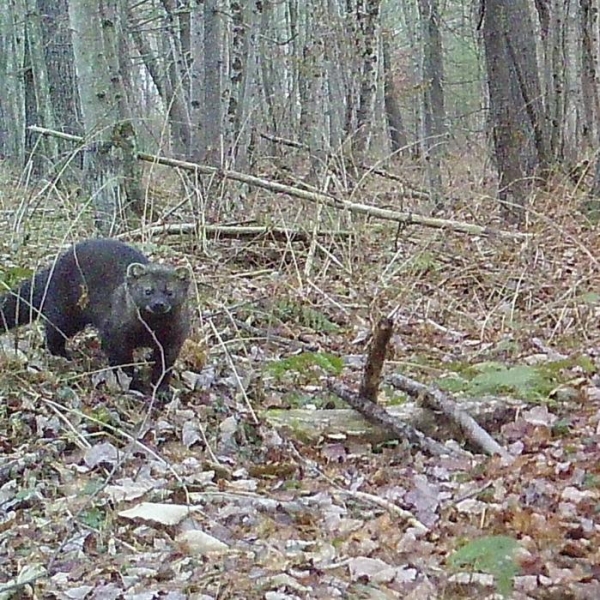The University of New Hampshire has been awarded over $1.2 million to investigate an apparent steady decline of the fisher population in the state of New Hampshire.
The University of New Hampshire has been awarded over $1.2 million to investigate an apparent steady decline of the fisher population in the state of New Hampshire. The grant, from the U.S. Fish and Wildlife Service and N.H. Fish and Game Department, will help UNH researchers investigate the health and mortality of fishers to better understand why these mammals, which can be indicators of forest health, are disappearing.
“Fishers are an important part of the forest ecosystem and tell us a lot about the dynamics of the carnivore community,” said Rem Moll, assistant professor in natural resources and environment. “They help control rodent populations and are also one of the few predators that can successfully hunt porcupines, and that might have benefits for forest health by minimizing bark and tree damage caused by porcupines.”
Along with wildlife cameras set up in forests around the state, researchers will track the population by outfitting them with GPS collars to better track and monitor survival and field mortalities. The collars will also include transmitters with mortality sensors for field recovery. N.H. Veterinary Diagnostics Laboratory (NHVDL) at UNH will then analyze pathology results to look for any toxins, blood-borne pathogens, bacteria and other data that could identify disease in tissue. The goal is to help determine specific causes of mortality and provide a comprehensive set of tools to assess the health of the Granite state’s fisher population.
Read more at: University of New Hampshire
Fisher caught on wildlife cameras that UNH has stragically set up near nashua, New Hamphire, to track their habbits and numbers in the winter. Photo Credit: UNH)




